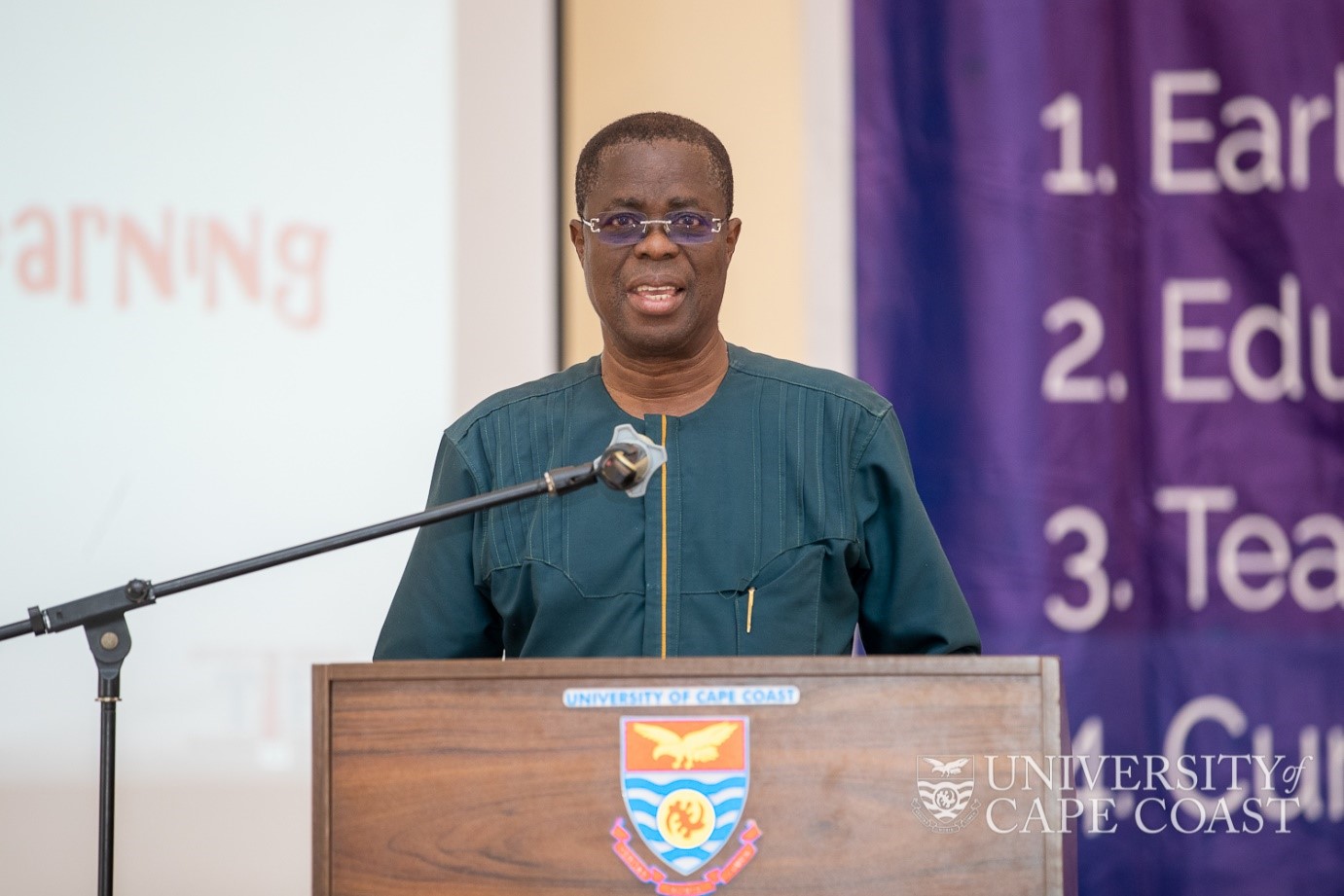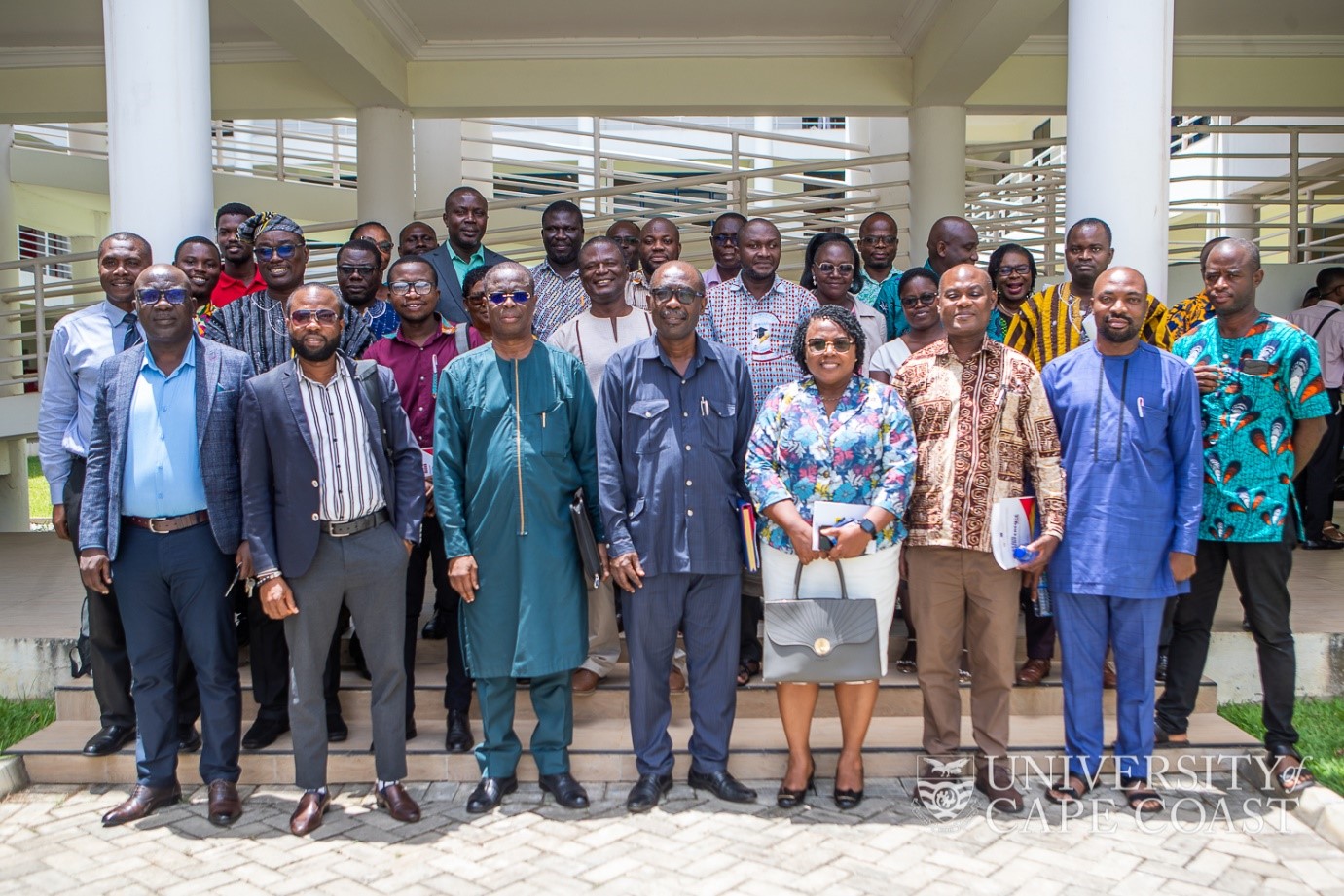The immediate past Vice-Chancellor of the University of Cape Coast (UCC), Prof. Joseph Ghartey Ampiah, has advised teachers to take advantage of Artificial intelligence (AI) to prepare lesson notes.
According to him, hours spent by teachers to prepare lesson notes would be reduced significantly when they utilize AI.
"Teachers can leverage on AI technology to streamline their lesson planning process. You want to plan a lesson ... So, I can tell AI, I want to draw up a lesson for one hour. I want to teach about this topic. Can you (AI) help me with activities and incorporate them into a lesson plan? AI will do everything for you. So that instead of spending three hours preparing your lesson notes, you will spend three to five minutes to prepare your lesson notes because you are using AI," he said.
Prof. Ampiah indicated that AI offered boundless opportunities to enhance learning outcomes, expand access to quality education and foster innovation in teaching methodologies and that it assisted with research in which the outcomes were utilised to improve society.
The former Vice-Chancellor expressed utter shock at the behaviour of some lecturers that students should not use A1 in their assignments or project works, calling on those lecturers to have a change of mindset.
Prof. Ampiah made the remarks at the second School of Educational Development and Outreach (SEDO) Conference, which was on the theme: “Empowering Future Citizens: Innovative Education on the 21st Century."
The conference was aimed at engaging educational practitioners, exchanging ideas and stimulating collaboration among academics, scholars, and researchers
Furthermore, the former Vice-Chancellor noted that AI held the potential to foster a culture of lifelong learning essential for the knowledge-based economy of the 21st century.
He was however quick to add that ethical considerations such as data privacy and bias should be considered in the usage of AI to ensure that the tools used were in comformity with ethical standards.
He said teachers must be more advanced in their preparations before the lessons so that students would be more engaged than the teacher during lesson notes.
Prof. Ampiah stressed that classrooms must become more discussion oriented instead of lecture-based, indicating that teachers must craft activities in advance to engage students in the teaching and learning process.
He pointed out that students should do 80 % of the work because they require the knowledge, while the teacher should do 20 % of the work as a facilitator in the teaching and learning process.
The former Vice-Chancellor said teachers need to be innovative, practical, and creative in their teaching.
He encouraged teachers to embrace modern teaching methods emphasizing critical thinking and problem-solving over rote learning.
Prof. Ampiah called for flip classrooms for higher education to ensure that students were provided with quality education that could be compared with their counterparts anywhere in the world.
He urged teachers to use e-learning platforms instead of WhatsApp platforms in teaching and learning and adopt innovative ways of making the classroom receptive and interactive for students.
The Dean of SEDO, Prof. (Mrs) Christine Adu-Yeboah, in her welcome address, said SEDO was mandated to conduct and use educational research in the training and development of educational practitioners, and to promote best teaching practices.
Through its outreach programmes including conferences, she added, the School had accelerated its efforts in training professionals to support the promotion of quality research and innovative educational practices for the development of 21st-century skills.
The conference was chaired by the Provost of the College of Education Studies, Prof. Ernest Kofi Davis.
Source: Documentation and Information Section-UCC


